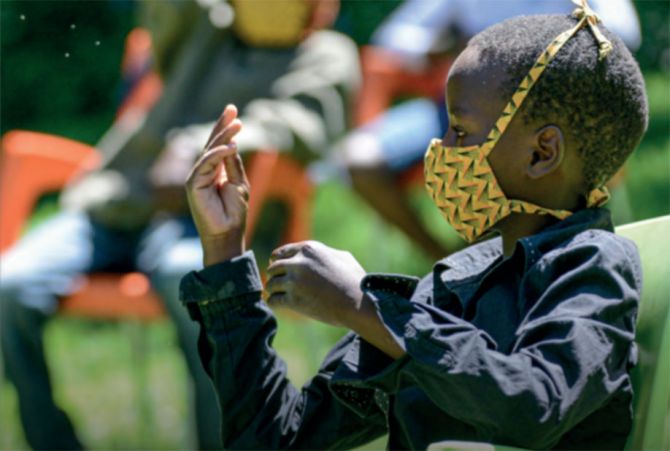

Feature Story
We need your thoughts and ideas on how to end AIDS among children, adolescents and mothers—new global online survey launched
08 December 2021
08 December 2021 08 December 2021The UNAIDS Joint Programme and partners agree that a new initiative is needed to accelerate and support action at the global, regional, country and community levels to urgently end AIDS among children, adolescents and mothers. To meet the needs of all stakeholders and ensure the engagement of all partners, we are undertaking a global consultation survey to gather ideas and opinions on what the priorities should be for ending AIDS among children, adolescents and mothers.
Eliminating vertical (mother-to-child) transmission of HIV and ending AIDS among children are among the global priorities highlighted in the new Global AIDS Strategy 2021–2026: End Inequalities, End AIDS.
In 2020, there were 1.7 million children living with HIV globally, almost half (46%) of whom were not on life-saving HIV treatment. In the same year, there were 150 000 new HIV infections among children. Most of these new child infections could have been prevented if adolescent girls and women had universal access to HIV testing, prevention and treatment services and the support they need to stay in prevention care or on HIV treatment throughout pregnancy and breastfeeding.
Over the past decade the Global Plan towards the Elimination of New HIV Infections among Children by 2015 and Keeping their Mothers Alive, followed by the Start Free, Stay Free, AIDS Free 2016–2020 framework, helped to coordinate, accelerate, support and monitor the global response to HIV among children, adolescents and mothers. Significant progress was made from 2010 to 2020, with coverage of HIV treatment to prevent vertical transmission for pregnant women living with HIV increasing from 45% in 2010 to 85% in 2020 and with a 53% reduction in new child HIV infections over the same period. However, this progress was not enough to reach any of the global targets set for the end of 2020.
New targets have been set for ending AIDS among children, adolescents and mothers in the Global AIDS Strategy 2021–2026. Urgent and coordinated action is needed, from the global to the community levels, to reach these ambitious new targets, and we need your input on how best to accelerate action, especially at the community and country levels.
Please complete the online survey, which is available in English, French, Russian and Spanish, by 20 December.
- Consultation for English speakers - https://bit.ly/3DMkjJ2
- Consultation for French speakers - https://bit.ly/30MT7f7
- Consultation for Spanish speakers - https://bit.ly/3rBc27F
- Consultation for Russian speakers - https://bit.ly/3G13wm2



